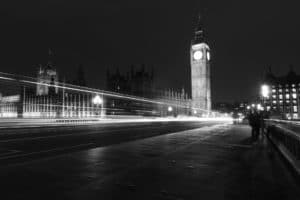Les concours écrits approchent, mais les oraux de langues sont tout aussi importants, dans TOUTES les écoles. Il faut donc que tu les prépares sérieusement dès maintenant. La bonne nouvelle, c’est que tu trouveras dans cet article tous les conseils pour réussir ton oral d’anglais. Ensuite, tu pourras découvrir une proposition de corrigé d’un texte type khôlle, afin de savoir comment un tel sujet aurait pu être traité !
Méthodologie
Il convient de rappeler que l’article à étudier en khôlle est souvent un article de presse, d’actualité.
Tu disposes de 20 minutes de préparation pour lire l’article, le comprendre et ensuite :
- Faire un résumé détaillé, précis et construit de l’article en 3-4 minutes.
- Dégager une problématique et faire un élargissement du sujet en 5-6 minutes (sans t’éloigner de l’article et en gardant toujours un lien avec la problématique). Je te conseille de consacrer plus de temps sur cette partie, qui est mieux valorisée !
Pour réussir ton oral d’anglais, il faut suivre les étapes suivantes :
- Commencer par une accroche en contextualisant le texte.
- Décrire l’article (en répondant aux « 5W » : What / Why / Where / When / Who).
- Suivre le mouvement du texte et repérer les arguments de l’auteur.
- Faire une transition entre le résumé et le commentaire, et entre les deux ou trois parties du commentaire.
- Illustrer tes propos par des exemples concrets et pertinents tirés du monde anglo-saxon.
- Rédiger une conclusion, avec une ouverture de préférence.
Quelques expressions et tournures pour bluffer le jury en khôlle
À propos de l’auteur
To manage to = réussir à
Biting irony = une ironie piquante
To modulate = nuancer
To lure = leurrer, persuader par la ruse, tromper
To hit the target = atteindre la cible
To achieve one’s goal/purpose = atteindre son but
To expose = dénoncer
To set up the plot = construire l’intrigue
To defeat conventions = mettre à mal les conventions
To deflect/to debunk a myth = déboîter un mythe
A sense of balance = l’équilibre
To pull the strings = tirer les ficelles
To go straight on to the point = aller droit au but
To lay down the law = faire autorité
The Autor is sceptical/questions/contests/supports/favours/endorses/concedes/agrees/attacks
À propos du texte
To belong to = appartenir à
To be efficient = être percutant, efficace (ex. : An efficient device)
The threshold = le seuil (ex. : To exceed the threshold of appearances)
The outcome = le dénouement
The plot = l’intrigue
To make sense = faire sens
To arouse, to rise = susciter
A thorny dilemma = un dilemme épineux
Coiled/embedded/intertwined stories = histoires imbriquées
To be frown upon = être vu d’un mauvais œil
A soliloquy = un monologue
To be fueled by = être alimenté par (ex. : The text is fueled by the autor’s irony)
Verbal performance = performativité du texte
Structures utiles
To start with = pour commencer
The second point to be made = le deuxième point à aborder
To sum up = pour résumer
To resume = reprendre, poursuivre
To deal with = traiter de
To put it in a nutshell = pour conclure
To be a way to = être une manière de
To put things differently = en d’autres termes
To be worth = en valoir la peine (ex. : It is worth noticing that the energy industry is expected to suffer a sharp decrease)
For the sake of argument = à titre d’exemple
To lead to = mener à, entraîner
To trigger = déclencher (ex. : The trigger point)
All the more since/as = d’autant plus que (ex. : It is all the more interesting as the solutions put forward are at the heart of current debate)
To pave the way = ouvrir la voie
Whenever = à chaque fois que
To turn out to be = s’avérer
So far = jusqu’à présent
To account for = justifier
As a result = en conséquence
There’s no denying that = on ne peut nier que
What is striking/strange/funny = ce qui est frappant/étrange/amusant
Needless to say = inutile de préciser que
Paradoxically enough = de manière assez paradoxale
Texte
Number of single-use bags handed out dropped to 500m in first six months since charge, compared with 7bn the previous year.
Rebecca Smithers, Consumer af airs correspondent
Sat 30 Jul 2016, last modified on Wed 14 Feb 2018 16.38 GMT
The number of single-use plastic bags used by shoppers in England has plummeted by more than 85% after the introduction of a 5p charge last October, early figures suggest.
More than 7bn bags were handed out by seven main supermarkets in the year before the charge, but this figure plummeted to slightly more than 500m in the first six months after the charge was introduced, the Department for Environment, Food and Rural Affairs (Defra) said.
The data is the government’s first official assessment of the impact of the charge, which was introduced to help reduce litter and protect wildlife – and the expected full-year drop of 6bn bags was hailed by ministers as a sign that it is working. The charge has also triggered donations of more than £29m from retailers towards good causes including charities and community groups, according to Defra. England was the last part of the UK to adopt the 5p levy, after successful schemes in Scotland, Wales and Northern Ireland.
Retailers with 250 or more full-time equivalent employees have to charge a minimum of 5p for the bags they provide for shopping in stores and for deliveries, but smaller shops and paper bags are not included. There are also exemptions for some goods, such as raw meat and fish, prescription medicines, seeds and flowers and live fish.
Around 8m tonnes of plastic makes its way into the world’s oceans each year, posing a serious threat to the marine environment. Experts estimate that plastic is eaten by 31 species of marine mammals and more than 100 species of sea birds.
The environment minister, Therese Coffey, said: “It shows small actions can make the biggest difference, but we must not be complacent, as there is always more we can all do to reduce waste and recycle what we use.”
The charge was introduced to try to influence consumer behaviour after the number of carriers bags given out by seven major supermarkets in England rose by 200min 2014 to exceed 7.6bn – the equivalent of 140 per person and amounting to a total of 61,000 tonnes of plastic.
Matt Davies, chief executive of the UK’s largest retailer Tesco said: “The government’s bag charge has helped our customers [in England] reduce the number of bags they use by 30m each week, which is great news for the environment.” Plastic bags can take hundreds of years to break down, but plastic drinks bottles and disposable coffee cups are now being seen as a huge challenge in protecting the environment.
The results of the Marine Conservation Society’s annual beach cleanup in 2015 showed that the amount of rubbish dumped on UK beaches rose by a third compared with the previous year. The number of plastic drinks bottles found were up 43% on 2014 levels.
“There is always more that we can do,” said Dr Sue Kinsey, a technical specialist for waste at the Marine Conservation Society. “We encourage everyone to join in on our Great British Beach Clean this September to help keep our coastlines clean.”
Introduction
The 2015 United Nations Climate Change Conference, COP 21, which was held in Paris in December 2015 set a target of keeping the increase in global average temperature to well below 2 per cent and to pursue efforts to limit the increase to 1.5 C. Putting an end to plastic waste is the primary environmental problem for the production process is a leading cause of all the carbon emissions which worsen global warming. Several measures have already been taken into account to reduce pollution and slow down global warming. In England, for instance, plastic bags are charged 5p. What is the impact of the charge? Did the nation positively react to the measure?
Le résumé de l’article
I) The charge
– Increasing use of bags: 7.6bn plastic bags in 2014 in the UK (140 bags/person).
– Harmonising policies with the rest of the UK; 5 pence charge for each bag delivered.
– The charge applies to shops with over 250 employees.
– However, there are exemptions for smaller shops + for some goods.
– Limited impact of the charge which does not take into account plastic drinks bottles and disposable coffee cups: increase of the number of plastic drinks bottles on beaches, which jeopoardises the efficiency of the charge.
II) Positive reaction of the population:
– Drop of 6bn bags: reduction of the number of bags so reduced waste = the population contributes to the protection of wildlife.
– money raised (29m pounds) for environmental causes.
III) Reluctance and remaining obstacles
– Exemptions are claimed to be illogic: counterproductive message.
– Risks of missing EU recycling targets for 2020.
– The charge is a small symbolic contribution; it is a first step to sensitize the nation: further
measures need to be implemented.
– Influencing or coercing consumer behaviour is insufficient and may prove counterproductive: consumers need to act willingly and they need to consent to sparing time to clean beaches for instance.
La transition
The measure may quickly show its limited efficiency if it is not applied more systematically.
Le commentaire
Since the UK implemented a 5 pence charge on plastic bags in 2014, the number of bags has dropped to 500 million bags in the first six months which followed. The charge is therefore required but is it sufficient to reduce waste and pollution and thus slow down global warming? Is the nation fully satisfied with the charge? The limits of the proposed measure should lead to a voluntary and not coerced change in consuming habits.
I) A necessary but limited and highly insufficient measure.
II) Alternative solutions?
III) Self- awareness and more adapted consuming habits are prerequisites.
Conclusion
Even though a plastic bag charge proves necessary, all actors of the supply chain from the producer to the retailer and the consumer need to modify their habits and mentalities.
Si tu as trouvé cet article utile, n’hésite pas à t’entraîner sur un autre sujet de khôlle, que tu peux retrouver ici, ou à consulter cet article pour découvrir toutes nos ressources pour exceller en anglais aux concours !











